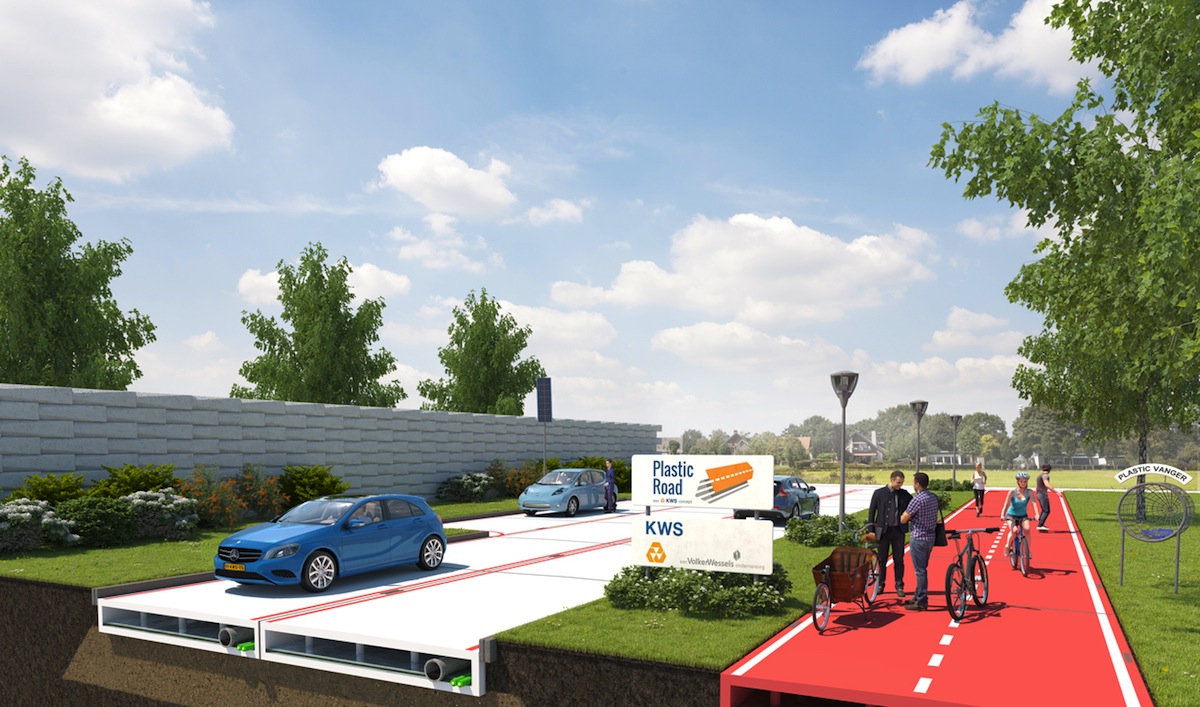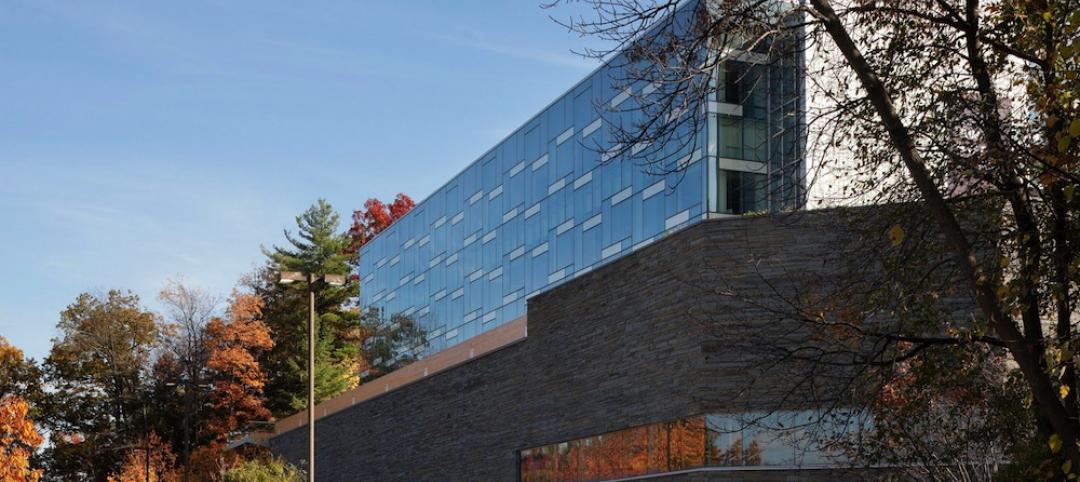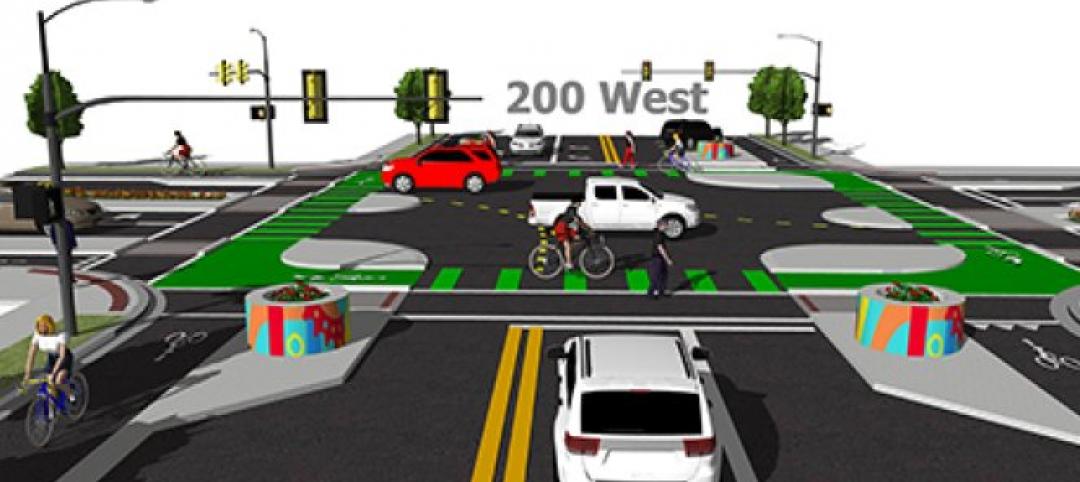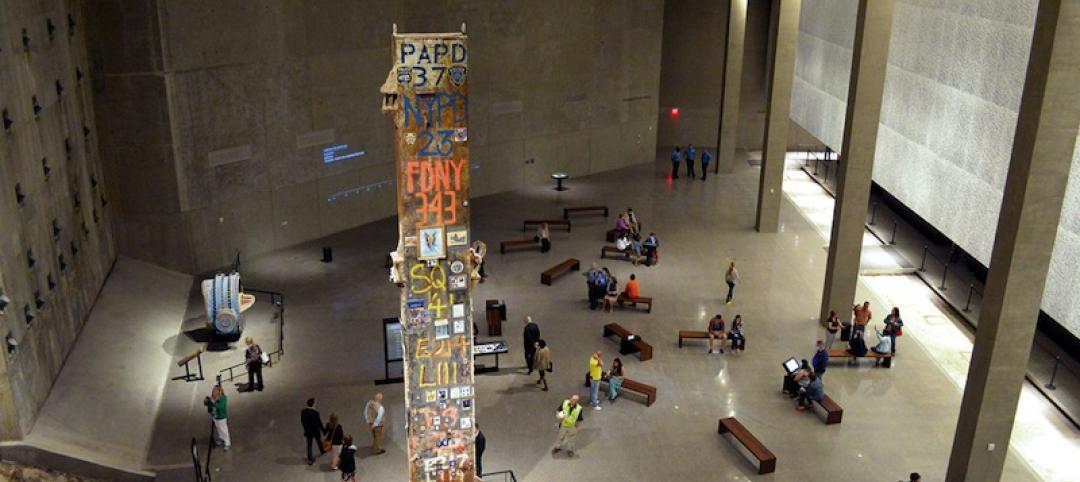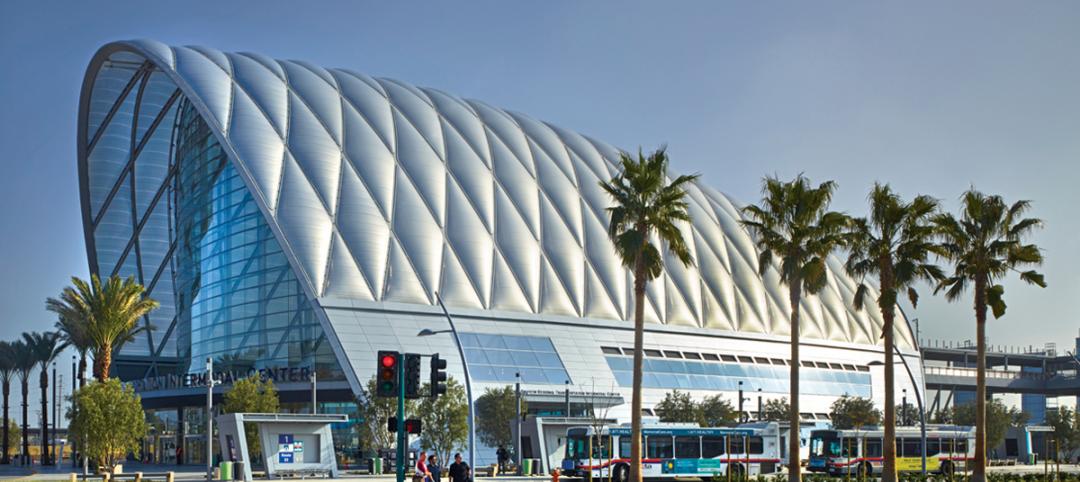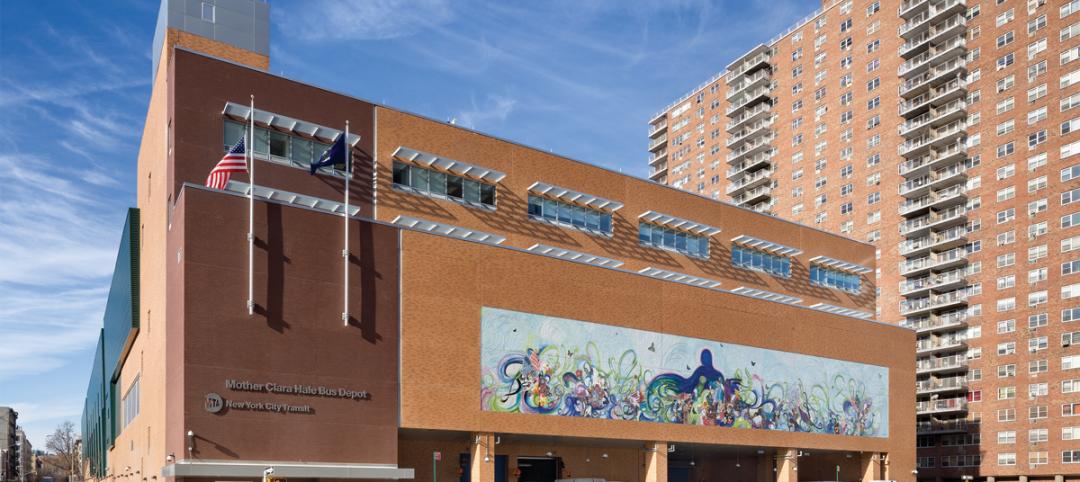All kinds of recycled waste goes into public roads these days, including blast furnace slag, scrap tires, and roofing shingles, according to the Federal Highway Administration.
An estimated 300,000 metric tons of recycled plastic are also used annually as a binder additive for public roads in the U.S. But that’s a drop in the bucket compared to the five trillion pieces of plastic junk currently floating in the oceans, to which eight million metric tons of plastic waste gets added every year.
The Netherlands is trying to take this recycling to another level, and is vying to become the first country to pave streets with materials made entirely from plastic waste.
Dutch-based KWS Infra, the roads division of VolkerWessel, is piloting a program to make roads from plastic garbage, including bags and bottles extracted from the ocean, according to Fast Company. This PlasticRoad project, which is still on the drawing board, is part of a larger initiative to rid the seas of its “plastic soup”.
Alex van de Wall, KWS’s innovation manager, says that the plastic being used would include a waste stream that normally doesn’t have high-end recycling applications and would otherwise be burned.
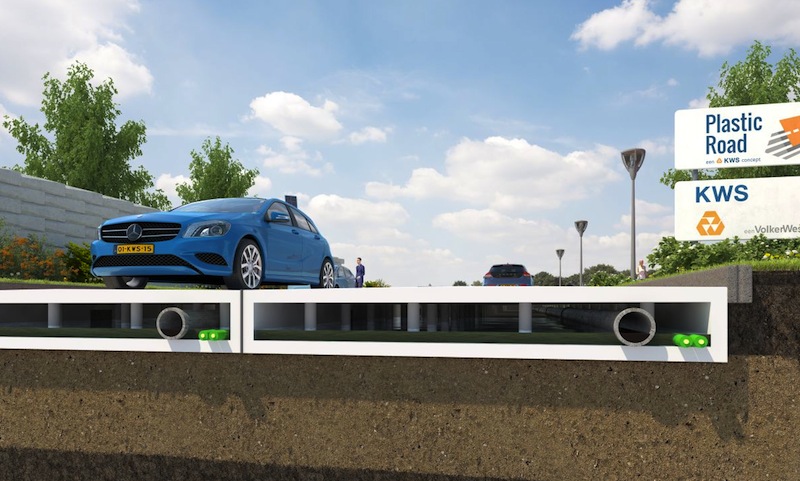
KWS sees a number of advantages to using plastic trash for roads over asphalt or concrete:
• Recycled plastic has a considerable lower carbon footprint than the production of asphalt, which accounts for 2% of global carbon emissions. Plastics can also withstand greater extremes of temperature—between -40 Celsius and 80C.
• Plastic roads could be modularized—i.e., made in factories and then snapped together in the field—so a road could be built quicker than with asphalt. KWS also claims that plastic-made roads would be far more durable and easier to maintain and repair than asphalt roads.
• Plastic could be colored white, which would help keep cities cooler and reduce what van de Wall says is the “heat island” effect caused by asphalt paving. Once this concept is translated into an actual product, “There are many options,” he says.
• When a plastic road wears out, it could be recycled again.
KWS thinks it can overcome some of the problems related to using plastic for roads, such as how the product reacts to changing temperatures and gets very hot. The company plans to test plastic roads in the lab first and then try them out at a “street lab” in Rotterdam.
“We’re very positive towards the developments around PlasticRoad,” said Jaap Peters, from that city council’s engineering department. “Rotterdam is a city that is open to experiments and innovative adaptations in practice.”
KWS is currently looking for plastic supply partners to assess the financial feasibility of its design. And if this concept pans out, the company expects to export the idea to other countries.
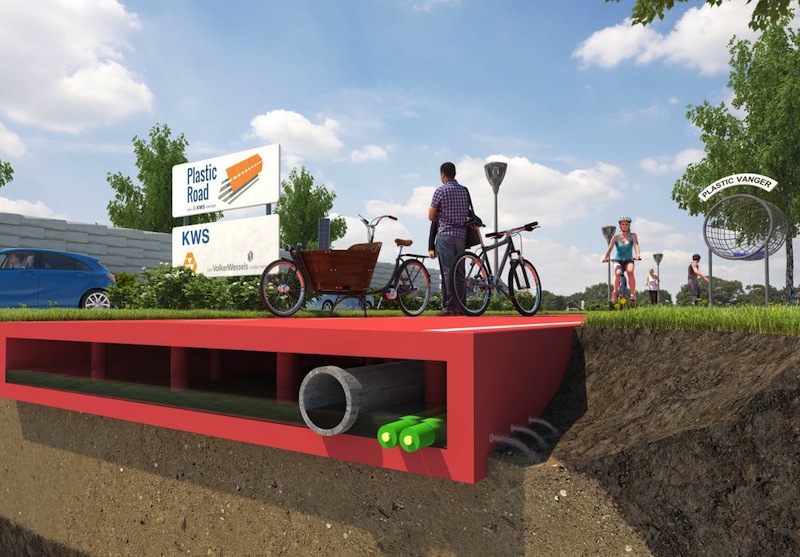
Related Stories
Green | Jul 16, 2015
7 parking facilities first to earn Green Garage Certification
The new program rates parking structures based on 48 elements of operation, from water reuse to bicycle parking to car sharing options.
Sponsored | Transit Facilities | Jun 15, 2015
Success through teamwork for landmark California project
The Anaheim Regional Transportation Intermodal Center (ARTIC) is the Grand Central Station of the future
Transit Facilities | Jun 9, 2015
BIG releases golden-roof plan for transport hub in Swedish city
“Like a continuous thin sheet, the roof is gently lifted at its four corners, wrapping the city's vehicular infrastructure in multiple layers of public program and urban spaces,” said Ingels.
Transportation & Parking Facilities | May 20, 2015
Federal Highway Administration releases guide for protected bike lanes
The guide consolidates lessons learned from practitioners designing and implementing separated bike lanes across the U.S.
Transportation & Parking Facilities | May 7, 2015
Salt Lake City on track to build first protected bicycle intersection in the U.S.
The templates are based on those found on Dutch streets.
High-rise Construction | May 6, 2015
Parks in the sky? Subterranean bike paths? Meet the livable city, designed in 3D
Today’s great cities must be resilient—and open—to many things, including the influx of humanity, writes Gensler co-CEO Andy Cohen.
Building Team Awards | Apr 10, 2015
14 projects that push AEC teaming to the limits
From Lean construction to tri-party IPD to advanced BIM/VDC coordination, these 14 Building Teams demonstrate the power of collaboration in delivering award-winning buildings. These are the 2015 Building Team Award winners.
Building Team Awards | Apr 10, 2015
Anaheim’s soaring intermodal hub
Anaheim's Regional Transportations Intermodal Center is the largest ETFE project in North America.
Building Team Awards | Apr 9, 2015
Nation's first LEED-certified bus depot
A bus garage in Harlem shows that even the most mundane of facilities can strut its environmentally sensitive stuff.


